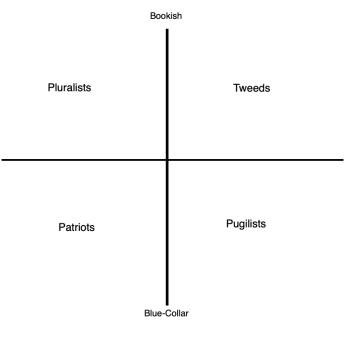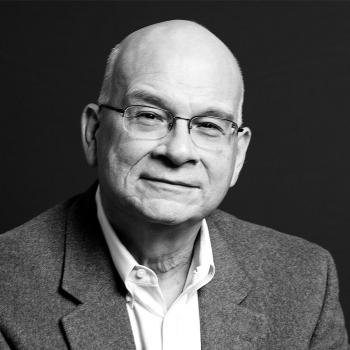 Not long ago, I ran across the unfortunate news that the Boy Scouts of America have elected to mortgage Philmont Scout Ranch in New Mexico, the Scouts’ flagship high-adventure property. In some ways, though, I’m not especially surprised. The BSA has faced steep membership declines over the last couple decades, and is currently staring down the barrel of multiple sexual-abuse lawsuits—with more to come as states relax the statutes of limitations for such cases. I’ve even read that the BSA may file for bankruptcy protection.
Not long ago, I ran across the unfortunate news that the Boy Scouts of America have elected to mortgage Philmont Scout Ranch in New Mexico, the Scouts’ flagship high-adventure property. In some ways, though, I’m not especially surprised. The BSA has faced steep membership declines over the last couple decades, and is currently staring down the barrel of multiple sexual-abuse lawsuits—with more to come as states relax the statutes of limitations for such cases. I’ve even read that the BSA may file for bankruptcy protection.
I’m generally a pretty optimistic person, but it’s impossible to see the BSA as anything other than—to put it charitably—ailing. And speaking as an Eagle Scout and former assistant Scoutmaster, who’s invested many, many hours in the movement over the years, it’s very painful to observe the BSA’s downward spiral.
Much of this decline, I think, is attributable to the BSA’s apparent inability to answer a surprisingly basic question: what is the BSA for? What is its reason for existence? (This is not a pathology unique to the BSA; I’ve written elsewhere about how universities are facing this very same question.)
The BSA certainly cannot claim to be the custodian of a particular set of longstanding moral principles. After securing at the Supreme Court—in a 5-4 decision—its right to enforce a traditional approach to sexual ethics, the BSA subsequently jettisoned its position in response to corporate pressures. Regardless of what one thinks about the merits of the issue, the BSA is clearly not an inspiring model of moral courage if its convictions can be so easily bought.
Nor can the BSA claim a principal focus on teaching outdoor skills. Notwithstanding the old adage that “‘Scouting’ is three-quarters ‘outing,’” the last few years, the last decade has witnessed the introduction of such merit badges as “Game Design,” “Programming,” and “Digital Technology”—in an apparent concession to the omnipresence of computer screens in Scouts’ lives.
And perhaps most strikingly, the BSA can no longer claim to be an organization primarily dedicated to the moral formation of young men’s character. After years of pressure to include young women in its programming, the BSA recently unveiled Scouts BSA, a unisex program allowing both boys and girls to participate in the same activities and earn the same ranks.
In light of all this, it seems to me that there is nothing the BSA does that some other organization cannot do better. Why pursue deskwork merit badges like “Digital Technology” when you could just join a school club? If social change is your goal, why be a Boy Scout when you could just participate in youth activism? If you simply want to get outside, why join the BSA and pay dues to a national organization when you could just go camping some weekend with your friends? And this crisis of purpose is a true tragedy, because an institution like the BSA is needed now—perhaps more than ever before.
In particular, I tend to think the BSA, at its best, could help fill the hole in young men’s lives that often is now filled by Jordan Peterson videos, video gaming subcultures, and alt-right propaganda. At its best, the BSA helped provide a narrative of what it means to become a good man, one who (in Aristotelian fashion) does those things that are proper for a man to do. And this, I think, is the ultimate antidote to the viler manifestations of male id that regularly spill across the Internet and into modern life.
The core philosophical-theological claim of the BSA has, for decades, been quite straightforward: God has created young men for particular purposes, including their progression in physical, mental, and moral virtue. The very foundations of Scouting provide an overarching architecture not of rights—claims that can be asserted against others—but duties, the responsibilities owed to others. The Scout Oath begins with the pledge to “do my duty to God and my country” and to “obey the Scout Law”—both of which are obligations and codes that transcend individual preference or pragmatic utility. And this is the moral grammar within which it becomes possible to address the age-old questions young men ask themselves. What are the proper ends toward which physical strength should be directed? What does it mean to be willing to have a duty to one’s country? What does it mean to lay down one’s life for one’s family, if necessary?
None of this is to say that young women aren’t interested in these things, or shouldn’t be instructed in them. But as I see it, there is a distinct value in speaking to young men as young men in a context where there is no pressure to project a certain image to potential romantic partners. It’s easier to have conversations about faith, purpose, and virtue in a setting (somewhat) free from the distraction of raging hormones. And make no mistake: those conversations among males will happen, unisex Scouting or no unisex Scouting. The conversations simply migrate elsewhere—like the nastier parts of Reddit or Discord, where the answer to the question what it means to be a man is routinely framed in terms of racial or sexual dominance. And that is a profoundly toxic result. (To be sure, I recognize that under the Scouts BSA model, individual troops remain single-sex organizations. Given how frequently troops cross paths with one another at Scouting events, however, I think the point still stands.)
At bottom, though, I realize that the argument I’m sketching rests on an increasingly contentious premise—that the organs of civil society need not be all things to all people. For instance, I have no right to demand that my church fulfill a primarily therapeutic function in my life: where I’ve sinned, I need to hear the Law preached in its fullness. Likewise, I have no right to demand that my college serve as a surrogate family: where I’ve turned in subpar work, I deserve a subpar grade. It increasingly seems to me that the much-mourned implosion of American civil society is—at least in some small part—exacerbated by institutions’ apparent fear of acknowledging we are this and not that. But such differentiation, for better or worse, is the only real alternative to an ever-blander institutional sameness that can attract no one at all.












